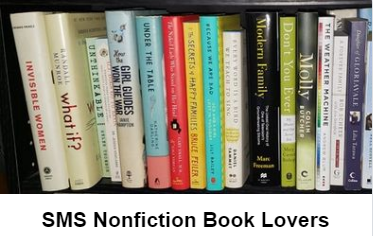**Giveaway Here!**
Stars: ****
Penguin Group USA (2011)
Nonfiction – Linguistics
240 pages
Summary:
An eye-opening tour for all language lovers, What Language Is offers a fascinating new perspective on the way humans communicate. From vanishing languages spoken by a few hundred people to major tongues like Chinese, with copious revelations about the hodgepodge nature of English, John McWhorter shows readers how to see and hear languages as a linguist does. Packed with Big Ideas about language alongside wonderful trivia, What Language Is explains how languages across the globe (the Queen’s English and Surinam creoles alike) originate, evolve, multiply, and divide. Raising provocative questions about what qualifies as a language (so-called slang does have structured grammar), McWhorter also takes readers on a marvelous journey through time and place-from Persian to the languages of Sri Lanka- to deliver a feast of facts about the wonders of human linguistic expression. – from Penguin Group USA
 I signed up for this book tour because I love reading about language however this book was more indepth that I had expected. I had a hard time getting into it at first but once I was past the first chapter or so, it was much better. There were still parts that I just couldn’t understand but I understood enough to enjoy the book. It is however hard reading and took a long time to read because I couldn’t read too much of it at once without falling asleep. It’s not that it was boring, just technical (as far as language goes) and concentrating that much when already tired makes you fall asleep.
I signed up for this book tour because I love reading about language however this book was more indepth that I had expected. I had a hard time getting into it at first but once I was past the first chapter or so, it was much better. There were still parts that I just couldn’t understand but I understood enough to enjoy the book. It is however hard reading and took a long time to read because I couldn’t read too much of it at once without falling asleep. It’s not that it was boring, just technical (as far as language goes) and concentrating that much when already tired makes you fall asleep.
You might think that a book on language couldn’t have humour but it does.
“It’s a pain for English speakers to have to learn the gender of every noun in French or German along with the noun itself. But in Navajo, for every single verb in the language you have to learn these five variations. You just have to know. The nearest equivalent for an English speaker would be if every verb were like be, where we have to know that it’s I am but I was and I’ve been and subjuntively, if I were – just imagine if English had it in addition that today I speak, yesterday I spoke, tomorrow I spock, repetitively I spack and hypothetically I just might spoo.” – pg 68.
You can’t tell me you didn’t just chuckle, especially if you read that aloud. This isn’t the only part like that.
I also learned quite a bit about English and why it has some weird words in it. For example we all wonder why it’s one man but many men. It has to do with the past.
“The plural of man […] was mani “mahnee.” The ee sound is pronounced in the front of the mouth, while the ah sound is in the back (try saying ee-ah-ee-ah and notice how you switch forward and back.) After a while, anticipating the upcoming ee, speakers started pronouncing the ah more frontally. One way of doing that is to pronounce it eh (say eh-ee-eh-ee and everything stays up front). This meant that mahnee was not pronounced meni. But sounds have a way of dropping off the ends of words as a language moves along […] The plural -i marker was no exception, and so by the time Proto-Germanic was Old English, meni was just men. ” – pg 72
In what other book can you learn about the way the word “ass” can be used in many different linguistic ways? (pages 124-126)
The book covers lots of different aspects of language including the difference between Black Language and Standard English, how language changes, and why some languages are more complex than others. (Hint: It has to do with whether adults are learning the language too or just children.)
Recommended if you love language, but be warned it’s complicated in some parts. However it’s also one of those books that you could skip a small section you don’t understand and still get something out of the book.
About The Author:
John McWhorter is the author of the bestseller Losing the Race: Self-Sabotage in Black America, The Power of Babel: A Natural History of Language, and four other books. He is associate professor of linguistics at the University of California at Berkeley, a senior fellow at the Manhattan Institute, and a contributing editor to The City Journal and The New Republic. – from Penguin Group USA
Other Reviews from TLC Book Tour:
Book Club Classics! , BookNAround, One Book Shy of a Full Shelf, Melody and Words, Rundpinne, Lit and Life, Hey I Want to Read That, The Broke and the Bookish, In the Next Room, Book Bird Dog, Acting Balanced, My Book Retreat, At Home with Books, Raging Bibliomania, Unabridged Chick, Overstuffed
Buy What Language Is… at amazon.com and support SMS Book Reviews










